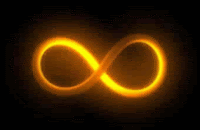
Having spent quantifiable time around elementary age children, I've come to note that, when kids first make the connection between chicken nuggets and hamburgers, and real live chickens and cattle (and that the animals that they eat have to die), they tend to have one of two reactions. The first is that of pure horror and revulsion, the big-eyed seven-year-old face that watches the film version of Charlotte's Web and cannot face the idea of pork chops on a dinner plate ever again. The second reaction is slightly more disturbing and is that of the five-year-old who slowly understands the concept, and interprets this to mean that it's okay to kill and torture animals (proceeding to stomp on all the bugs he or she sees, pull the cat's tail and throw rocks at the birds). There does exist a third reaction that is, in my opinion, far too infrequently encountered, and that is one of a sudden reverence for the food that's put on the table at dinnertime, with an understanding that something had to die for the child to eat.
This issue does not pose an ethical conundrum for me, personally. I decided long ago that all life has intrinsic value, be it animal or vegetable, insect, canine or chondricthian. Thus, no life should be needlessly slain without due cause. This understood, destruction is an inherent requirement for the persistence of life: cattle mercilessly cut down living grass for sustenance the same way a lion takes down a gazelle (well, maybe in a slightly different fashion) and the vegetarian takes the life of an artichoke with no remorse, just as my grandmother shamelessly serves a turkey for dinner. The point isn't to lament the taking of life -for to do so would be to lament one's existence as a life on Earth with a status that is inescapable with out the faculties of photosynthesis- but to understand and appreciate the fact that life was sacrificed somewhere down the line. It's a fact of life, so get over it and don't get too worked up about it, but be mindful.
The factor that I hadn't considered when developing my worldview came to me today, as I had a friend show me the new sequel to the Dead Rising game for the Xbox: Zombies. Zombies are not alive, they are instead undead. This is to say that they were once alive, then were once dead, and then proceeded to become not dead anymore. To kill something that is alive is to violate its active pursuit to maintain a living status, but to rise from the dead is an active violation of the status of being dead, which naturally follows being alive. One could then say that the zombie is the antagonist, violating the natural order of things. Yeah, okay, but then why do I feel such revulsion at the scenes in Dead Rising 2, when certain individuals cut down bloody scores of zombie hoards with glee... for fun? There are, in fact, characters in this video game who have taken advantage of the zombie epidemic to create gameshows, the premise of which is to slaughter zombies in as many numbers as possible in the most creative (and rather sadistic) ways.
So I ask myself, is this an affront to the zombies? Well, they are not alive, thus the only result of their being "killed" is to stop their rebellion to, their overturning of, the natural order. Perhaps I feel some sort of revulsion because these forms were once alive, were once living individuals with personalities, contributions and relationships. In a way, wantonly cutting down their zombie forms for amusement is an insult to the lives they once lived, like the mutilation of a corpse. Okay, so that's understandable, I guess. But my reaction goes beyond feelings for the zombies. And I find myself remembering Emmanuel Kant's perspective on the issue of human responsibilities to animals.
Kant did not believe as I do, that animals and all life has intrinsic value simply because it exists and so humans have the obligation to revere it. No, Kant believed that animals had little value in themselves. He did believe, however, that Humans had a moral responsibility not to mistreat animals. This was because this moral obligation helps humans to develop their own morality, their own humanity. That is to say, a man should treat a dog well not because he values the life of the dog, but because a human should be above the mistreatment of an innocent animal. It was for our own sake. This is a logic that seems applicable to my zombie problem. I may not have any real sympathies for the zombies (especially when they grab onto you and go for the jugular) but don't think that they should be herded into an arena to be cut down by contestants with chainsaws simply because, well, humans should be beyond such base destruction. I have to side with Kant on this one and say that zombie-killing shouldn't be done for sport because such activities are a threat to our own humanity, the development of our own morality.
I honestly never thought I'd have to decide where I stand on this subject... but life's full of surprises I guess. Now, in the event there is ever a large-scale zombie outbreak, I'll have my priorities figured out.





